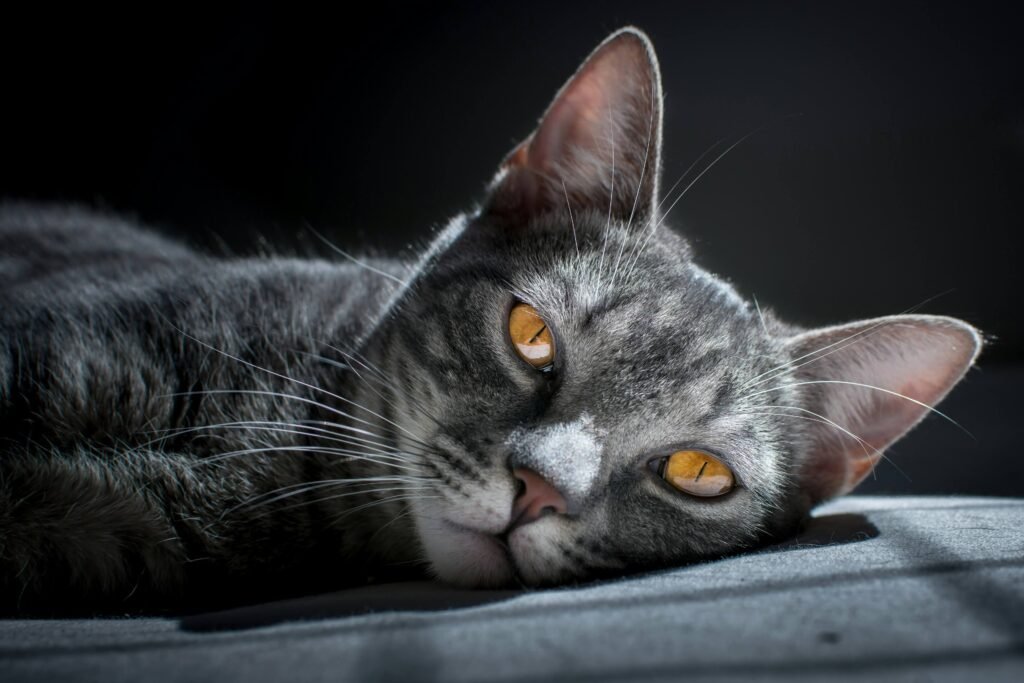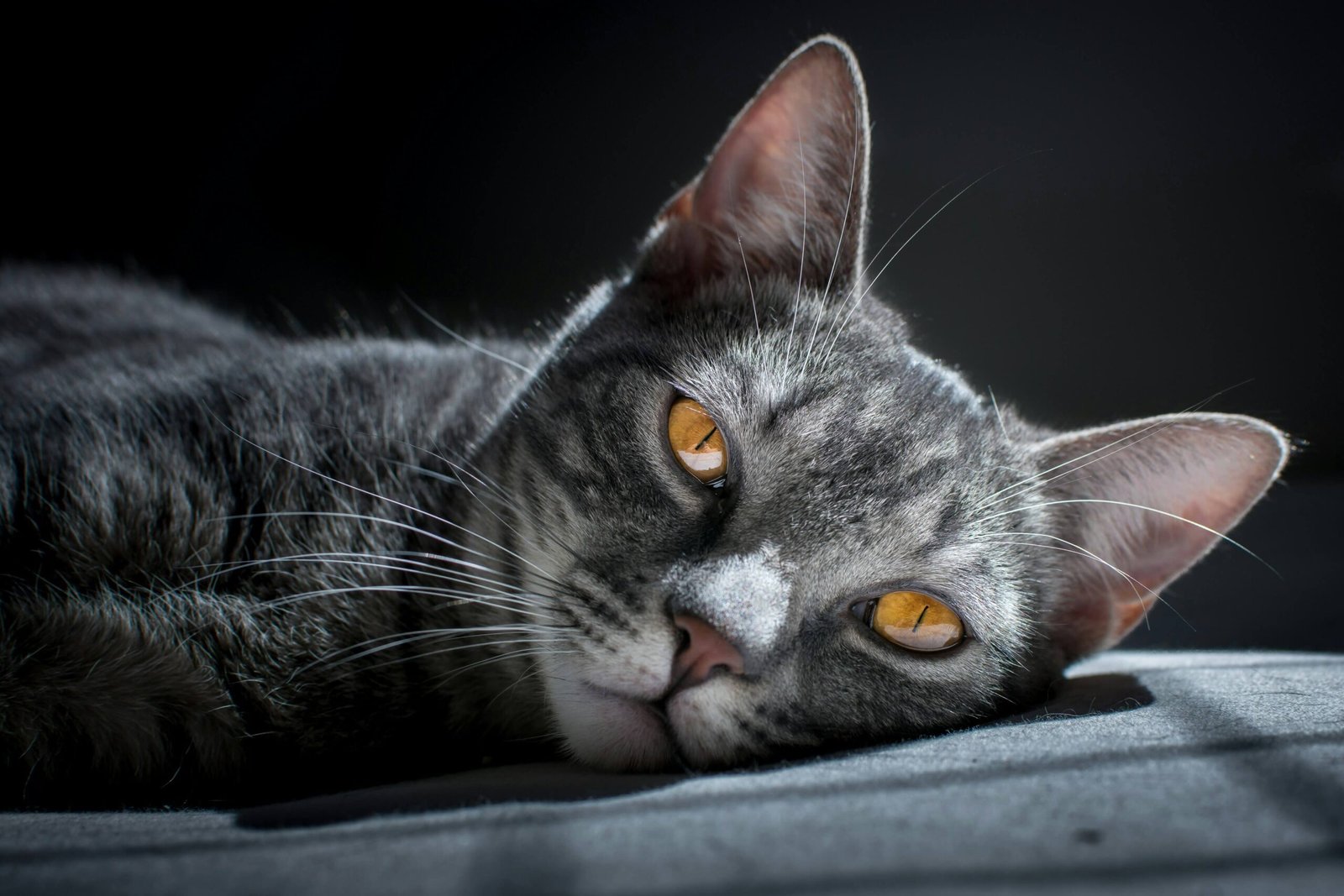Why Does My Cat Eat Too Fast and Throw Up?
If your cat wolfs down their food only to vomit it back up shortly after, you’re not alone. Many cat owners face this frustrating issue, which can leave both you and your feline friend stressed. While occasional vomiting might not be a cause for concern, frequent episodes could indicate an underlying problem—whether behavioral, dietary, or health-related. Eating too fast can lead to regurgitation, digestive upset, and even more serious complications if left unchecked. In this blog post, we’ll explore the reasons behind this behavior, how to address it, and practical solutions to help your cat eat slower and stay healthier.
Common Reasons Cats Eat Too Fast
Cats may eat too quickly for a variety of reasons, and understanding these can help you address the root cause. Here are some common explanations:
Competition : If you have multiple cats, your pet might feel the need to eat quickly to avoid losing their food.
Instinctual Behavior : Wild ancestors of domestic cats often ate hurriedly to prevent other animals from stealing their prey.
Hunger : A cat that’s overly hungry due to missed meals may gulp down food too fast.
Stress or Anxiety : Emotional distress can lead to rapid eating as a coping mechanism.
Boredom or Overexcitement : Some cats simply get overexcited about mealtime and don’t pace themselves.
Identifying the reason behind your cat’s behavior is the first step toward finding an effective solution.
Signs Your Cat Is Eating Too Fast
If you’re unsure whether your cat’s eating habits are problematic, here are some signs to watch for:
Regurgitation : Undigested food being brought up shortly after eating is a clear sign of eating too fast.
Gulping Sounds : Loud, rapid eating noises indicate your cat isn’t chewing properly.
Vomiting After Meals : Frequent vomiting after meals suggests your cat is consuming food too quickly.
Excessive Hunger : Begging for food immediately after finishing a meal can indicate they didn’t feel satisfied.
Weight Fluctuations : Rapid eating can sometimes lead to overeating, which may result in weight gain or loss.
If you notice any of these signs, it’s important to take steps to slow your cat’s eating and prevent further issues.
Check this guide 👉Top 5 Best Cat Top 5 Best Cat Slow Feeder Bowls for Healthy Eating!
Check this guide 👉Top 4 Best Sensitive Cat Foods for Ultimate Relief!
Check this guide 👉Cat Food for Constipation: Best 7 Expert Tips!

Ways to Slow Down Your Cat’s Eating | Foods to Avoid for Fast Eaters |
|---|---|
Use a slow feeder bowl | Dry kibble in large quantities |
Feed smaller, more frequent meals | Foods with artificial additives or fillers |
Incorporate puzzle feeders | High-fat treats that encourage overeating |
Spread food across multiple bowls | Human food like dairy or fatty scraps |
Hand-feed small portions during training | Large chunks that are hard to chew |
How to Slow Down Your Cat’s Eating
Slowing down your cat’s eating can prevent regurgitation and improve digestion. Here are some practical strategies to try:
Slow Feeder Bowls : These specially designed bowls have ridges or obstacles that force your cat to eat more slowly.
Puzzle Feeders : Interactive toys that dispense food gradually engage your cat’s mind and slow their eating.
Smaller, Frequent Meals : Breaking meals into smaller portions throughout the day can reduce the urge to eat quickly.
Separate Feeding Areas : If you have multiple cats, feeding them in separate areas can eliminate competition.
Hand Feeding : Offering small amounts of food by hand can teach your cat to eat at a slower pace.
By implementing these techniques, you can help your cat develop healthier eating habits and reduce the risk of vomiting.
Health Risks of Eating Too Fast
Eating too quickly can lead to more than just vomiting—it can also pose serious health risks for your cat. Here’s what to be aware of:
Regurgitation : Frequent regurgitation can cause dehydration and nutrient deficiencies.
Obesity : Cats that eat too fast may overeat, leading to weight gain and related health issues.
Bloat : Although rare in cats, eating too quickly can increase the risk of stomach bloating.
Behavioral Issues : Stress or anxiety associated with rapid eating can worsen over time.
Digestive Problems : Gulping air while eating can lead to gas, discomfort, and poor digestion.
Addressing your cat’s eating speed is essential to preventing these potential complications and ensuring their long-term well-being.
Signs of Stress During Mealtime
If your cat is eating too quickly, stress or anxiety might be contributing to their behavior. Here are some signs that mealtime is causing stress:
Pacing Around the Bowl : Your cat may circle the food bowl repeatedly before eating.
Growling or Hissing : Vocalizations during meals can indicate discomfort or territorial behavior.
Guarding the Food : Your cat may stand over the bowl protectively, even if no other pets are nearby.
Avoidance Behavior : Some cats may hesitate to approach their food due to fear or anxiety.
Overeating in Short Bursts : Gulping down food rapidly can be a stress response.
Recognizing these signs can help you address the emotional factors behind your cat’s fast eating and create a calmer mealtime environment.
How to Create a Calm Feeding Environment
A peaceful feeding environment can encourage slower eating and reduce stress. Here are some tips to make mealtime more relaxing for your cat:
Choose a Quiet Location : Place the food bowl in a low-traffic area away from noise or distractions.
Limit Interruptions : Ensure other pets or family members don’t disturb your cat while they eat.
Use Elevated Bowls : Raised bowls can make eating more comfortable and promote slower chewing.
Stick to a Routine : Feed your cat at the same times each day to establish predictability.
Provide Privacy : If your cat seems anxious, consider feeding them in a separate room.
By creating a calm and consistent feeding routine, you can help your cat feel more secure and reduce their urge to eat too quickly.
Long-Term Benefits of Slowing Down Eating
Slowing down your cat’s eating habits offers numerous long-term benefits for their health and well-being. Here’s what you can expect:
Improved Digestion : Eating slowly allows for better chewing and nutrient absorption.
Reduced Vomiting : Slower eating minimizes the risk of regurgitation and digestive upset.
Weight Management : Controlled portions and slower eating can prevent overeating and obesity.
Behavioral Improvements : A calmer mealtime can reduce stress-related behaviors like aggression or pacing.
Stronger Bond with Your Cat : Taking steps to improve their eating habits shows care and attention, strengthening your relationship.
By addressing your cat’s eating speed now, you’re investing in their long-term health and happiness.
Frequently Asked Questions About Cats Eating Too Fast
Why does my cat throw up undigested food?
This is often due to eating too quickly, which prevents proper chewing and digestion.
Can eating too fast harm my cat?
Yes, it can lead to regurgitation, obesity, and digestive issues.
Are slow feeder bowls effective?
Yes, they’re designed to slow down eating and reduce the risk of vomiting.
Should I change my cat’s diet?
Consult your vet before making changes, but high-quality, easily digestible food can help.
How do I know if my cat’s vomiting is serious?
Persistent vomiting, blood in vomit, or accompanying symptoms like lethargy require immediate veterinary attention.
Helping Your Cat Eat Slower and Stay Healthier
Cats that eat too fast and throw up can create stress for both pets and their owners. By understanding the causes of this behavior and implementing practical solutions, you can help your cat slow down and enjoy their meals safely. Whether through slow feeder bowls, puzzle feeders, or adjusting meal routines, there are plenty of ways to support your feline friend. Remember, patience and consistency are key—your cat’s health and happiness depend on your care and attention. With the right approach, you can ensure your cat eats at a healthy pace and avoids the discomfort of regurgitation.
Do Cats Have Taste Buds? Best 7 Expert Tips! – Discover how cats experience flavors and why their taste is so unique.
Do Dogs Have Taste Buds? Best 7 Expert Tips! – Discover how dogs experience taste, their preferences, and what it means for their diet and health.
Can Cats Taste Sweet? Best 7 Expert Tips! – Discover why cats can’t taste sweetness, how it affects their diet, and tips to keep them healthy and happy.
Can Dogs Taste Sweet? Best 7 Expert Tips! – Discover how dogs perceive sweetness, which foods are safe, and tips to manage their sweet cravings responsibly.





